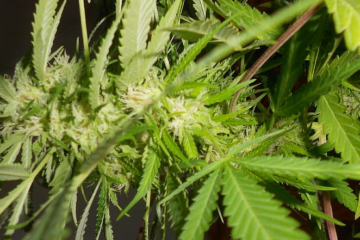As the Pennsylvania legislature reconvened in Harrisburg, a new cannabis legalization bill was introduced by a bipartisan pair of legislators, Reps. Aaron Kaufer (R-Luzerne) and Emily Kinkead (D-Allegheny). The bill, known as House Bill 2500, aims to legalize cannabis for recreational adult use and establish a regulated marketplace. This move comes as Pennsylvania seeks to join its neighboring states in legalizing recreational cannabis. The bill also includes provisions for expungement of past cannabis convictions and support for minority-owned businesses.
Provisions of House Bill 2500
House Bill 2500 outlines several key provisions aimed at regulating the cannabis industry in Pennsylvania. The bill would legalize cannabis for recreational use for adults aged 21 and older. It allows for the possession of up to 30 grams of cannabis flower, 5 grams of concentrate, or 1,000 milligrams of THC. The bill also establishes a tax on cannabis products, with revenue distributed to municipalities with cannabis dispensaries, addiction prevention and recovery services, and local law enforcement.

The bill includes measures to support social equity in the cannabis industry. It prioritizes licensing for minority-owned, women-owned, and veteran-owned businesses. Additionally, it provides for the expungement of past cannabis convictions and allows those currently incarcerated for non-violent cannabis-related offenses to apply for resentencing. The Pennsylvania Department of Agriculture would oversee the regulation of the cannabis marketplace, ensuring product quality and consumer safety.
Support and Opposition
The introduction of House Bill 2500 has garnered both support and opposition from various stakeholders. Proponents of the bill argue that legalizing cannabis will generate significant tax revenue, create jobs, and reduce the burden on the criminal justice system. They also emphasize the importance of social equity provisions in addressing the disproportionate impact of cannabis prohibition on minority communities. Brittany Crampsie, a spokesperson for Responsible PA, a pro-cannabis lobbying group, highlighted the need for technical conversations to ensure the successful implementation of the bill.
However, opponents of the bill raise concerns about the potential negative effects of cannabis legalization. They argue that increased access to cannabis could lead to higher rates of substance abuse and impaired driving. Some law enforcement officials have expressed concerns about the challenges of regulating and enforcing cannabis laws. Despite these concerns, advocates believe that the momentum is on their side, and they are optimistic about the bill’s chances of passing.
The Path Forward
The path forward for House Bill 2500 will involve navigating the legislative process and addressing the concerns of various stakeholders. The bill’s sponsors, Reps. Aaron Kaufer and Emily Kinkead, have emphasized the importance of collaboration and compromise in achieving their goal of legalizing cannabis in Pennsylvania. They have called on their colleagues in the Democratic-controlled chamber to co-sponsor the bill and support its passage.
The bill’s success will depend on the ability to build a broad coalition of support from lawmakers, advocacy groups, and the public. The sponsors are hopeful that the bill will be taken up by the House and Senate and that Pennsylvania will join the growing number of states that have legalized recreational cannabis. As the legislative session progresses, the debate over cannabis legalization will continue to be a prominent issue in Harrisburg.



